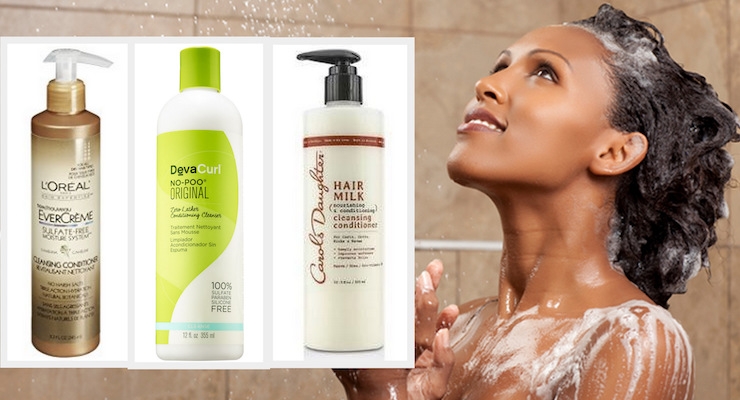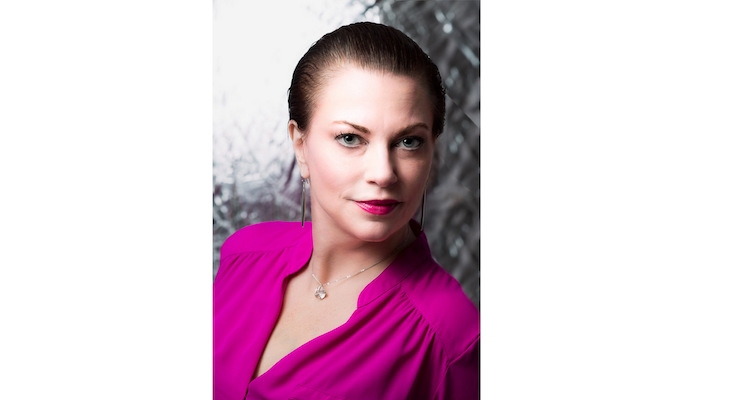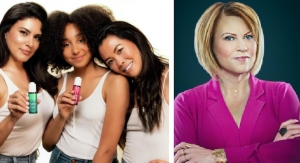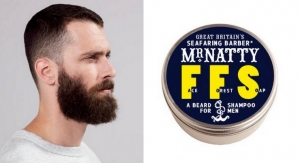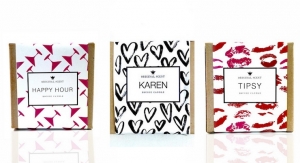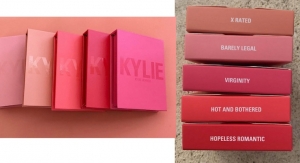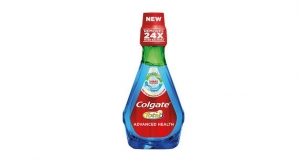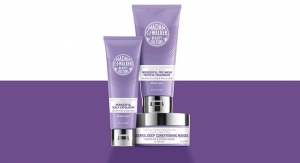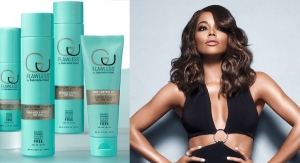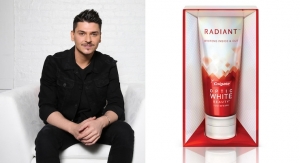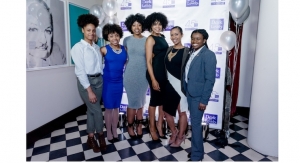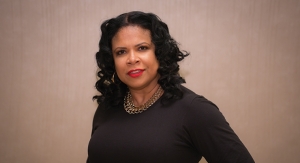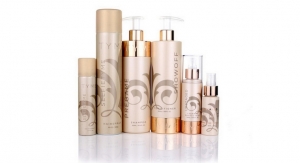Elle Morris02.26.17
Women everywhere are washing their hair less often; pushing that shampoo bottle aside in favor of “co-wash,” the idea of skipping shampoo and relying only on conditioner or “no-poo” products instead.
If you would have suggested this to a Caucasian woman 10 years ago, she probably would have looked at you as if you were crazy, lazy or both. After all, we grew up in the “wash, rinse, and repeat” generation. However, if you had asked an African American woman, she might have said, “Oh yeah, my mom/aunties/grandmas used to do that back in the 70’s when they had a ‘fro.”
So how is it that Co-Washing and No-poo have become raging trends with both African American women and white women in the USA?
Co-Washing
Generations of African American women were ‘[co] washing’ with natural oils before the 20th century. African American women have wrestled with the dry, curly texture of their hair for centuries. Washing it with shampoo or soap (before shampoo) would dry their hair out. Cleaning with natural oils or conditioner and rinsing away dirt and odor was a much healthier alternative for African American hair.
This cultural practice started to reemerge with a vengeance once the natural hair movement was reborn in the late 2000s when Chris Rock’s groundbreaking film, Good Hair was released. Good Hair examined African American women’s relationship with their hair and with it, their relationships with chemical relaxers. African American women saw what kind of damage relaxers did to an aluminum can and many opted instead for the natural look, hence the reemergence of the Natural hair movement. African American women looked for new ways to keep their hair healthy and happy – and rediscovered what had been part of their culture – co-washing.
Nikki, an African American woman with Natural hair tells me, “As you know, but many do not, black women, or women with kinky, curly, porous hair wouldn't have much hair left if we washed it every day because the natural oils our follicles produce is ESSENTIAL for the health of our hair. And the more oil, the more manageable. When I was younger, that concept & that oil was seen as dirty & there were not many products made just for us, at least not in the stores.... momma would make it in her kitchen if she had to! So yeah.... I’ve been doing this for a lifetime!”
There are MANY women of all races with dry, curly hair who have turned to co-washing because it keeps their hair healthy. To some this is a new trend, to others, like my friend Baraka, who would identify herself as a “flower child, this is not a new practice. She picked it up in her youth back in the 70’s. She uses the same products and as many of my African American girlfriends do, though they are different races and different generations of women.
The No-Poo Movement
No-poo is a kind of crunchy, white-girl movement that started recently in comparison. It’s often lumped in with the Co-washing movement. No-poo started with Baby Boomer Caucasian women who were concerned about daily shampooing and the stripping effect the products seemed to have on their hair. These women sought natural remedies and began experimenting with baking soda and vinegar, eventually developing a host of natural shampoo alternatives. Caucasian hair texture is very different than African American hair texture, so baking soda and vinegar works on cleansing their hair while it would strip and damage typical African American hair.
Allyson, a Caucasian woman in her 30’s says, “I've been using the No-poo method for 18 months. I investigated it when I got pregnant and my hair was in such bad condition from dying, processing, ironing etc. so I decided to stop for my pregnancy. And STOPPED using shampoo. I washed it every other day with baking soda and a bit of vinegar. The first 6 weeks was awful, but once my hair’s eco system righted itself – my natural hair was gorgeous!”
Speak Clearly To Consumers
So now that we understand the “who” behind each of these movements – let’s make sure we are clear on the “why” so that beauty companies can speak to these different consumers with distinct voices.
Co-washing is a swing back to heritage in cultural beauty ideals, while no-poo represents the shift toward the naturals movement. To be clear, there are many cleansing conditioners designed for both of these consumer groups that are combined together into one group: no poo/co-wash cleansing conditioner for all hair types. While doing this may reach the largest possible market, beauty companies are missing the opportunity to talk to these consumers as separate groups and build narratives around their brands, which shows a deep understanding and appreciation behind each movement.
I believe the Co-washing and No-poo movements are going to be institutionalized into haircare. African American women are becoming an increasingly significant segment of the population and white women with curly hair texture have embraced the co-washing movement. No-poo will continue to grow because of the rise in awareness of naturals and the fact that water is becoming a more precious resource.
Photos, slideshow above: 1. A few "no-poo" and cleansing conditioners; 2. the author, Elle Morris.
ABOUT THE AUTHOR
If you would have suggested this to a Caucasian woman 10 years ago, she probably would have looked at you as if you were crazy, lazy or both. After all, we grew up in the “wash, rinse, and repeat” generation. However, if you had asked an African American woman, she might have said, “Oh yeah, my mom/aunties/grandmas used to do that back in the 70’s when they had a ‘fro.”
So how is it that Co-Washing and No-poo have become raging trends with both African American women and white women in the USA?
Co-Washing
Generations of African American women were ‘[co] washing’ with natural oils before the 20th century. African American women have wrestled with the dry, curly texture of their hair for centuries. Washing it with shampoo or soap (before shampoo) would dry their hair out. Cleaning with natural oils or conditioner and rinsing away dirt and odor was a much healthier alternative for African American hair.
This cultural practice started to reemerge with a vengeance once the natural hair movement was reborn in the late 2000s when Chris Rock’s groundbreaking film, Good Hair was released. Good Hair examined African American women’s relationship with their hair and with it, their relationships with chemical relaxers. African American women saw what kind of damage relaxers did to an aluminum can and many opted instead for the natural look, hence the reemergence of the Natural hair movement. African American women looked for new ways to keep their hair healthy and happy – and rediscovered what had been part of their culture – co-washing.
Nikki, an African American woman with Natural hair tells me, “As you know, but many do not, black women, or women with kinky, curly, porous hair wouldn't have much hair left if we washed it every day because the natural oils our follicles produce is ESSENTIAL for the health of our hair. And the more oil, the more manageable. When I was younger, that concept & that oil was seen as dirty & there were not many products made just for us, at least not in the stores.... momma would make it in her kitchen if she had to! So yeah.... I’ve been doing this for a lifetime!”
There are MANY women of all races with dry, curly hair who have turned to co-washing because it keeps their hair healthy. To some this is a new trend, to others, like my friend Baraka, who would identify herself as a “flower child, this is not a new practice. She picked it up in her youth back in the 70’s. She uses the same products and as many of my African American girlfriends do, though they are different races and different generations of women.
The No-Poo Movement
No-poo is a kind of crunchy, white-girl movement that started recently in comparison. It’s often lumped in with the Co-washing movement. No-poo started with Baby Boomer Caucasian women who were concerned about daily shampooing and the stripping effect the products seemed to have on their hair. These women sought natural remedies and began experimenting with baking soda and vinegar, eventually developing a host of natural shampoo alternatives. Caucasian hair texture is very different than African American hair texture, so baking soda and vinegar works on cleansing their hair while it would strip and damage typical African American hair.
Allyson, a Caucasian woman in her 30’s says, “I've been using the No-poo method for 18 months. I investigated it when I got pregnant and my hair was in such bad condition from dying, processing, ironing etc. so I decided to stop for my pregnancy. And STOPPED using shampoo. I washed it every other day with baking soda and a bit of vinegar. The first 6 weeks was awful, but once my hair’s eco system righted itself – my natural hair was gorgeous!”
Speak Clearly To Consumers
So now that we understand the “who” behind each of these movements – let’s make sure we are clear on the “why” so that beauty companies can speak to these different consumers with distinct voices.
Co-washing is a swing back to heritage in cultural beauty ideals, while no-poo represents the shift toward the naturals movement. To be clear, there are many cleansing conditioners designed for both of these consumer groups that are combined together into one group: no poo/co-wash cleansing conditioner for all hair types. While doing this may reach the largest possible market, beauty companies are missing the opportunity to talk to these consumers as separate groups and build narratives around their brands, which shows a deep understanding and appreciation behind each movement.
I believe the Co-washing and No-poo movements are going to be institutionalized into haircare. African American women are becoming an increasingly significant segment of the population and white women with curly hair texture have embraced the co-washing movement. No-poo will continue to grow because of the rise in awareness of naturals and the fact that water is becoming a more precious resource.
Photos, slideshow above: 1. A few "no-poo" and cleansing conditioners; 2. the author, Elle Morris.

